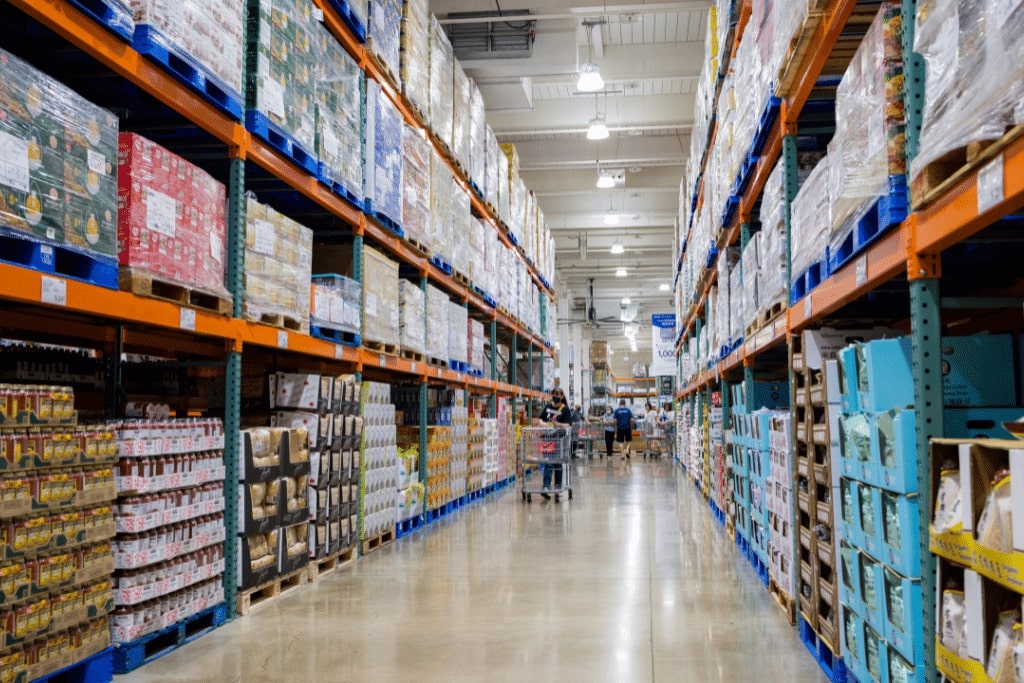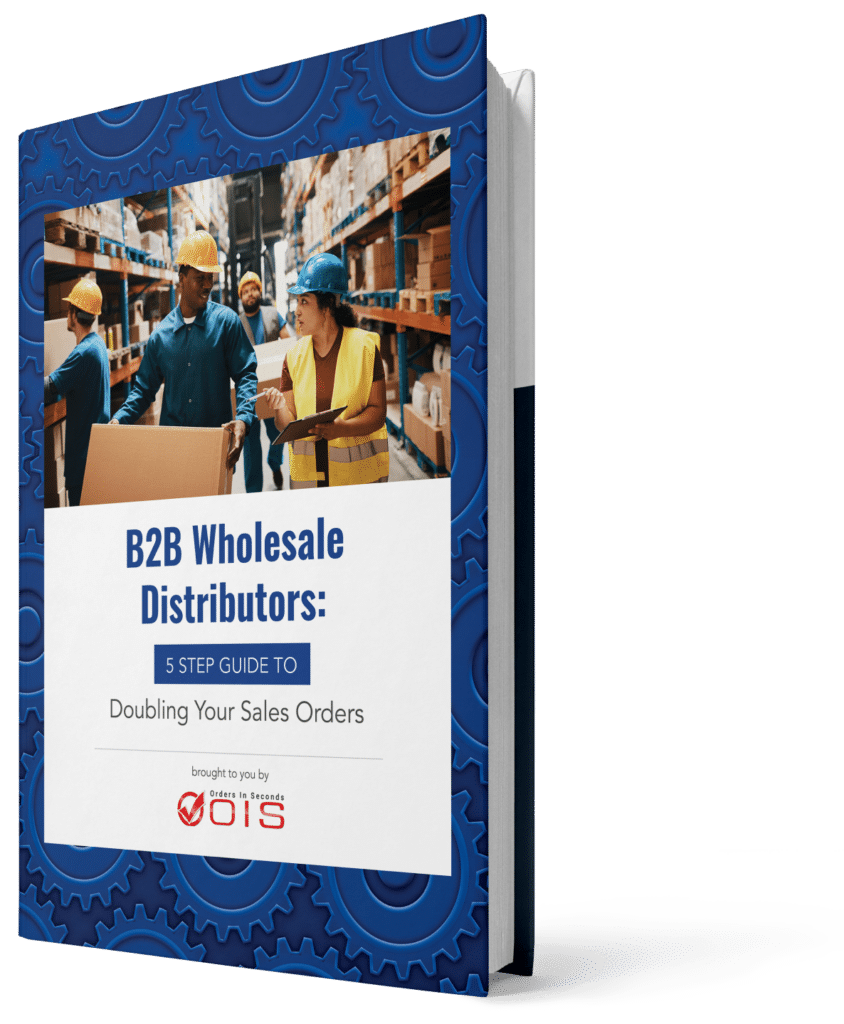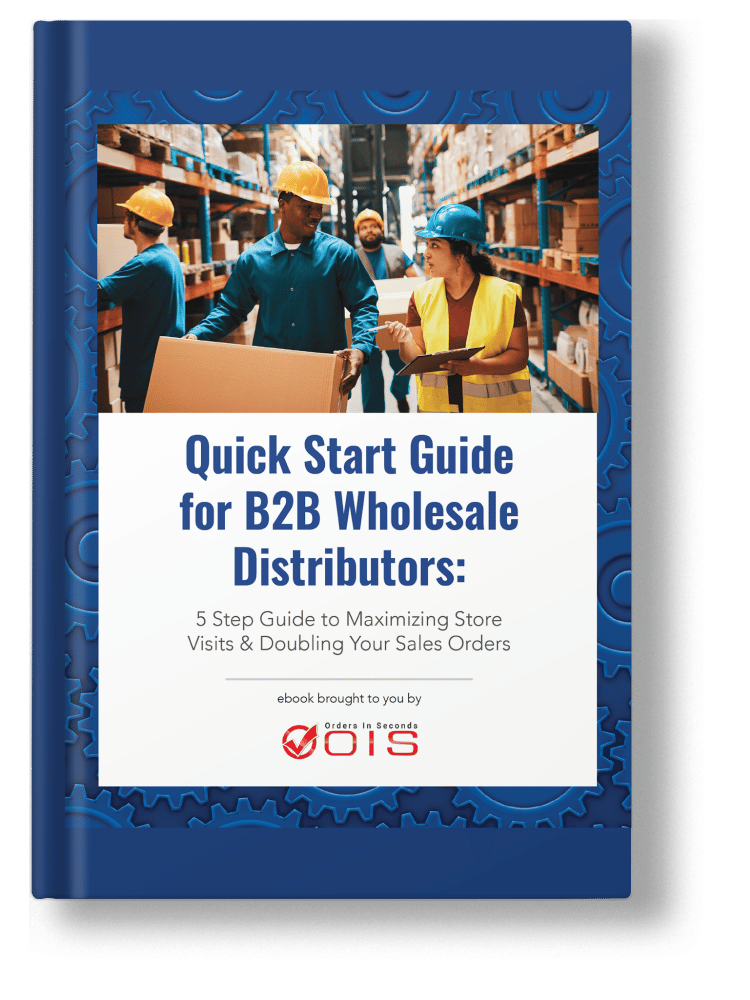Food wholesalers are essential for restaurants and retailers, providing them with a variety of products in manageable quantities. This article explains what food wholesalers do, highlights leading companies, and outlines the benefits of working with them.
Key Takeaways
- Food wholesalers serve as vital intermediaries, providing a diverse range of products to restaurants, retailers, and retail chains while maintaining a steady supply chain.
- Leading U.S. food wholesalers like Sysco and US Foods dominate the market, offering extensive product selections and contributing significantly to the foodservice industry.
- When choosing a food wholesaler, consider product quality, delivery reliability, sustainability practices, and pricing structures to optimize business operations and meet customer needs.
Table of Contents
- Understanding Food Wholesalers
- Leading Food Wholesalers in the USA
- What to Look for in a Food Wholesaler
- Types of Specialty Foods Offered by Food Wholesalers
- Specialty Foods and Distribution
- Benefits of Partnering with a Food Wholesaler
- Foodservice Supply Chain Solutions
- How to Start Working with a Food Wholesaler
- Success Stories: Hear from Customers
- Sustainability and Food Safety Practices Among Food Wholesalers
- Innovations in Foodservice Supply Chain Solutions
- Summary
- Frequently Asked Questions
- Optimizing Food Wholesale Operations with OIS Solutions
Understanding Food Wholesalers

Food wholesalers support restaurants and independent retailers by providing a unique, high-quality assortment of products. They serve as intermediaries, breaking down large product volumes from producers into smaller quantities suitable for retail and foodservice operators. As intermediaries, they make a wide range of products available to meet diverse customer needs.
These food distributors warehouse and transport food products, offering operators access to a diverse range of goods from numerous manufacturers. This logistical support maintains a steady supply of fresh produce, specialty foods, and other essential items. Many wholesalers operate online, enabling customers to place orders through their websites, adding a layer of convenience and efficiency to the supply chain.
The U.S. food industry is vast, with half of all food purchases made for consumption away from home, highlighting the importance of food wholesalers in this market. Foodservice supply chain solutions from wholesalers help businesses thrive and ensure consumers have access to a wide variety of foods. Additionally, food wholesalers cater to drug stores, providing specialized services to meet their needs.
Leading Food Wholesalers in the USA

The food distribution industry in the U.S. is fragmented, but a few major players dominate the market. Companies like Sysco, US Foods, and Performance Food Group control significant market shares, each generating billions in annual revenue. For example, Performance Food Group boasts an annual revenue of $56.7 billion, making it one of the top food distributors.
US Foods, with an annual revenue of $28.1 billion, and United Natural Foods Inc. (UNFI), reporting $29.86 billion, are other key players in the industry. They offer a comprehensive range of products, including fresh produce, specialty items, and private brands, catering to different market segments.
C&S Wholesale Grocers, with an annual revenue of $33 billion, supplies over 7,700 supermarkets and stores, demonstrating its extensive reach. Companies like McLane Company, reporting over $51 billion in revenue, and Reyes Holdings, with over $30 billion, also play crucial roles in the foodservice supply chain. Leading distributors play a vital role in launching and scaling food and beverage businesses across the industry.
Gordon Food Service, based in Grand Rapids, caters to restaurants, educational institutions, and healthcare facilities, showcasing its versatility and commitment to quality. Maines Paper & Food Service targets chain restaurants, independent operators, and institutional accounts, ensuring that a wide range of customers can benefit from their services.
What to Look for in a Food Wholesaler
When selecting a food wholesaler, several key considerations come into play. Product quality, delivery timelines, and shipping costs are critical factors that can significantly impact your business’s operations. A wholesaler’s ability to consistently deliver high-quality products on time is key to maintaining customer satisfaction and loyalty.
Researching a supplier’s reputation, service quality, and references is also important. Checking for relevant licenses and certifications helps gauge a supplier’s commitment to quality and food safety. Collaborating with a wholesaler helps maintain a reliable supply chain, reduce stock shortages, and ensure smooth business operations.
Sustainable practices are increasingly important in today’s market. Efficient management of the supply chain helps minimize environmental impact by reducing waste and optimizing transportation routes. Implementing sustainable packaging options, such as biodegradable materials, can significantly lower pollution and waste contributions. Collaborating with a wholesaler who prioritizes sustainability can enhance your business’s reputation and appeal to eco-conscious consumers.
Understanding pricing structures and payment options is crucial for effective budgeting when working with food wholesalers. Flexible ordering and delivery options tailored to your needs can provide additional convenience and support. Assessing your specific needs and aligning them with a wholesaler’s offerings helps avoid unnecessary expenditures and optimize operations.
Types of Specialty Foods Offered by Food Wholesalers

Food wholesalers typically offer a wide range of products, including organic, natural, and conventional foods. Companies like Sysco Corporation provide fresh and frozen food, beverages, and even equipment, ensuring that businesses have everything they need to operate efficiently. This wide range of products caters to the diverse needs of the foodservice industry.
Wholesalers such as United Natural Foods Inc. (UNFI) emphasize natural, organic, and specialty foods, along with private label products. Focusing on specialty products allows retailers to offer unique items that attract specific customer bases. Additionally, the H.T. Hackney Co. provides a selection of food, beverages, and non-food items, demonstrating the versatility of food wholesalers.
The rise of plant-based proteins is transforming food offerings, as consumers look for healthier and more sustainable alternatives to meat. Cultured meat, produced in labs, and innovations like 3D printing technology are gaining acceptance and could reduce reliance on traditional livestock farming. Innovative products like these reflect evolving consumer preferences and the food industry’s commitment to sustainability.
Specialty foods are a burgeoning segment within the food industry, driven by consumer demand for high-quality, unique, and often artisanal products. Specialty food distributors play a pivotal role in bringing these exceptional items to market, catering to the distinct needs of manufacturers, retailers, and consumers alike. These distributors possess a deep understanding of the specialty food market, offering valuable insights and support to their customers.
Key characteristics of specialty food distributors include:
A Focus on Quality and Uniqueness: Specialty food distributors prioritize products crafted with high-quality ingredients and unique flavor profiles or production processes. This focus ensures that the products stand out in a competitive market.
Strong Relationships with Manufacturers: These distributors often maintain close relationships with manufacturers, enabling them to source products that precisely meet the needs of their customers. This collaboration fosters innovation and quality.
Knowledge of the Market: Specialty food distributors have an in-depth understanding of market trends, consumer preferences, and competitor activities. This knowledge allows them to provide strategic advice and support to their clients.
Flexibility and Adaptability: The ability to quickly adapt to market changes or customer needs is a hallmark of specialty food distributors. This flexibility ensures they can meet the evolving demands of the foodservice industry.
Examples of specialty food distributors include KeHE Distributors, known for its extensive range of natural, organic, and specialty products, and Gordon Food Service, which offers a wide array of specialty foods to the foodservice industry. These companies exemplify the critical role that specialty food distributors play in delivering unique and high-quality products to market.
Benefits of Partnering with a Food Wholesaler

Working with a food wholesaler offers numerous benefits, beginning with significant cost savings. Bulk purchasing from food wholesalers allows businesses to save on unit costs, positively influencing profit margins. This cost efficiency is particularly beneficial for independent grocers and small retailers looking to compete in a crowded market.
Top food distributors provide access to a larger selection of products, including specialty foods and private brands, which can help diversify your product offerings and attract more customers. Choosing the right food distributor enhances supply chain efficiency, ensuring products are always available when needed. This efficiency is crucial in maintaining customer satisfaction and loyalty.
Having multiple suppliers can also provide backup options and help diversify product types, reducing the risk of stock shortages. Partnerships with food distributors streamline operations and offer valuable market insights, helping businesses stay ahead of consumer trends.
Foodservice Supply Chain Solutions
Foodservice supply chain solutions encompass the systems and processes that manage the flow of goods, services, and information from raw materials to end customers within the foodservice industry. Effective supply chain management is crucial in this sector, where food safety, quality, and freshness are paramount.
Key components of foodservice supply chain solutions include:
Procurement: Sourcing high-quality ingredients and products from reliable suppliers is the first step in ensuring a robust supply chain. This involves selecting suppliers who meet stringent quality and safety standards.
Inventory Management: Efficient inventory management ensures that products are available when needed, reducing the risk of stockouts and overstock situations. This component is vital for maintaining a steady supply of fresh produce and other perishable items.
Logistics: Coordinating the transportation and storage of products is essential for maintaining product quality and safety. Effective logistics management minimizes delays and ensures timely delivery.
Distribution: Delivering products to customers in a timely and efficient manner is critical for maintaining customer satisfaction. This involves optimizing delivery routes and schedules to ensure prompt service.
Food Safety: Ensuring that products are handled and stored in a way that maintains their safety and quality is a top priority. This includes adhering to food safety regulations and implementing best practices in food handling and storage.
Companies like Sysco and McLane Company exemplify excellence in foodservice supply chain solutions. Sysco provides a comprehensive range of supply chain services tailored to the foodservice industry, while McLane Company offers specialized supply chain solutions to convenience stores and other retailers. These companies demonstrate the importance of effective supply chain management in ensuring the success and sustainability of foodservice operations.

Avoid the Top 5 Mistakes Wholesale Distributors Make
Are you making one of the top 5 mistakes that plague wholesale distributors? Download our free eBook to find out. We’ve also included tips and guidance to help you save time and avoid costly mistakes.
How to Start Working with a Food Wholesaler
Establishing a connection with a food wholesaler often begins with researching potential partners that align with your business needs. Verifying the regulatory requirements relevant to food businesses in your area is crucial before initiating a partnership. This step ensures that you comply with all legal standards and avoid any potential issues down the line.
Before placing orders, customers typically need to complete a registration process to create an account with the wholesaler. This process may involve providing business details, verifying licenses, and setting up payment methods. After setting up the account, businesses can explore product offerings and make purchases, streamlining procurement.
Communicating directly with a sales representative can provide personalized service and assistance with orders. This relationship ensures that your specific needs are met and can provide valuable advice on product selection, delivery schedules, and more. Fostering a strong partnership with a food wholesaler enhances business operations and ensures a steady supply of quality products.
Success Stories: Hear from Customers
Working with a reputable wholesaler ensures consistent product quality and fosters customer loyalty. For example, Schenck Foods, delivering quality products for over 80 years, has established a strong reputation among customers. Customers rave about Schenck Foods, noting it as a great company, providing quality products and exceptional service.
For urgent orders, Schenck Foods allows customers to call ahead for order preparation, demonstrating their commitment to customer service.
The H.T. Hackney Co. has also established significant partnerships, such as with Circle K, demonstrating the wholesaler’s reliability and the value of strong business relationships.
Sustainability and Food Safety Practices Among Food Wholesalers

The aim of sustainability practices among food wholesalers is to improve access to quality food while reducing environmental impact. Schenck Foods Company is involved in giving back to the communities they serve, offering the service to request donations to support local initiatives. Such commitment to community support highlights the social responsibility of food wholesalers. Nonprofits receiving this kind of support often depend on nonprofit membership software to keep members engaged and sustain their programs long-term.
The food wholesale sector is also seeing a shift towards sustainable production methods, emphasizing environmental protection and animal welfare. Technological advancements in food production, such as automation and precision farming, are enhancing efficiency and sustainability. Urban farming, vertical farming, and hydroponics are emerging as innovative solutions to reduce transportation costs and environmental impact.
A circular economy approach, focusing on waste reduction and resource regeneration, is becoming vital in the food supply chain. Adopting these practices allows food wholesalers to significantly reduce their environmental footprint and contribute to a more sustainable future.
Innovations in Foodservice Supply Chain Solutions
The food wholesale industry is rapidly adopting technology advancements for better logistics and supply chain management. Amazon Fresh, for instance, provides online grocery delivery and pickup services, revolutionizing how wholesalers interact with consumers. The shift towards digital solutions enhances convenience retail and efficiency in food distribution.
Emerging and sustainably-driven brands are gaining traction in the food wholesale market, creating new opportunities for businesses and consumers alike. These brands reflect the growing demand for sustainable and innovative products, increasingly important to modern consumers.
There is a significant trend towards sustainability within the product offerings of food wholesalers, reflecting changing consumer preferences. By focusing on innovative products and sustainable practices, the food wholesale industry is poised to meet the evolving needs of the market and drive future growth.
Summary
In summary, food wholesalers play a crucial role in the foodservice industry, providing a wide range of products and services that support the growth and success of restaurants and retailers. From understanding the essentials of food wholesalers to exploring the leading distributors in the USA, we have covered the key aspects that can help businesses thrive.
By partnering with the right food wholesaler, businesses can achieve significant cost savings, enhance supply chain efficiency, and access a diverse selection of products. The focus on sustainability and innovation further ensures that food wholesalers can meet the evolving needs of the market. Embrace the opportunities that food wholesalers offer and watch your business flourish.
Frequently Asked Questions
Food wholesalers serve as crucial intermediaries in the foodservice industry, converting bulk products from producers into smaller quantities that meet the needs of restaurants and retailers. This process ensures efficient distribution and access to a variety of food products.
Some of the leading food wholesalers in the USA are Sysco, US Foods, Performance Food Group, United Natural Foods Inc. (UNFI), and C&S Wholesale Grocers. These companies dominate the food distribution market, providing a wide range of products and services.
When selecting a food wholesaler, prioritize product quality, delivery timelines, shipping costs, supplier reputation, and sustainable practices to ensure a reliable partnership. These factors will significantly impact your business’s success and sustainability.
Food wholesalers provide a diverse array of products, including organic and conventional foods, fresh produce, beverages, snacks, and various non-food items. This comprehensive selection meets the needs of different retailers and food service businesses.
To start working with a food wholesaler, research potential partners, verify regulatory requirements, and complete the necessary registration process. Establish clear communication with their sales representatives for personalized assistance.
Optimizing Food Wholesale Operations with OIS Solutions
Food wholesalers play a vital role in supplying restaurants and retailers with quality products efficiently. OIS solutions help food distributors streamline order processing, picking, and delivery—ensuring fast, accurate fulfillment to meet industry demands. Stay ahead with smarter distribution.






